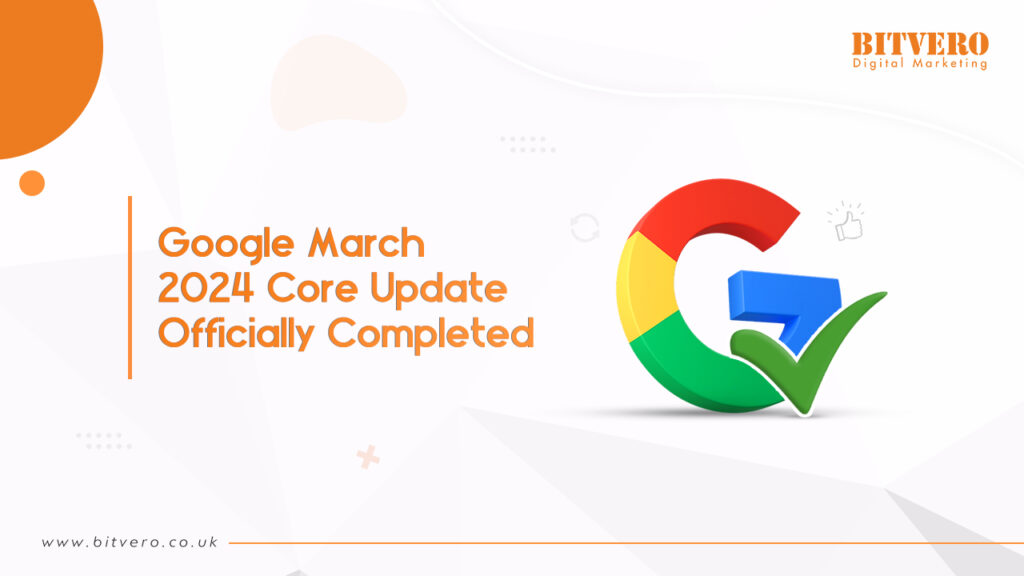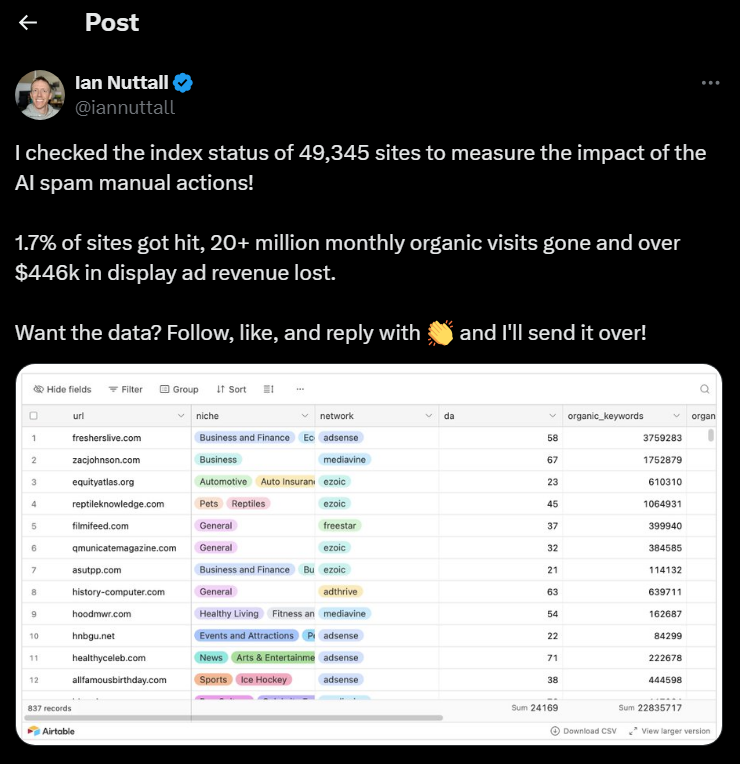Google March 2024 Core Update Officially Completed

Google updates its algorithms from time to time so that users get the best results for their searches and search marketers get deserved rankings for their efforts.
These updates vary, focusing on combating the different unethical SEO practices prevailing at different periods of time.
This time, with AI, low-quality content has become one such concern, as many people are using it to manipulate rankings. So, Google’s recent March core update mainly focused on dealing with spammy or low-quality content.
What was the Google March 2024 Core Update?
On March 5th, Google announced that it is going to roll out a new but more complex update that will focus on improving the search quality for users. The update will change multiple core systems to combat the content that seems more to get clicks and less to help the users- said Google. So, the aim was to enhance core systems so they identify and prioritise the helpful content while producing search results. For this, the estimated target set was that it would reduce low-quality content in search results by 40%.
Besides low-quality content, two other spams, namely site reputation abuse and expired domain abuse, were that the core update focused on.
Also read: Can AI Content Rank on Google?
Site reputation abuse
Many reputable site owners host third-party content on their websites, no matter how irrelevant it is to the site’s identity. For example, people visiting a history niche website to read historical facts end up seeing reviews for a car because the website lets a third party do so, distracting users’ search journey and leaving them frustrated.
Because this confuses the site reader and provides poor UX, Google considers it spammy and decided to address it in the March core update.
Expired Domain Abuse
Many people purchase expired domains to get the benefit of their previous reputation. When inherently it is not wrong to do, things go unethical when people use the domain for a whole different type of content or niche. For example, a domain previously used for medical websites now hosts low-quality casino-related content, as Google cited.
According to Google, this is not something that people do unintentionally but knowingly. Because this aims to manipulate rankings, Google decided to deal with it through the March core update.
As the update was about to take some time to be rolled, in the meantime, Google suggested search marketers focus on creating helpful, reliable, people-first content and not to worry about this ongoing update if they are already following ethical practices.
What were the impacts of the Google March Core Update?
After the update rolled out, many impacts were observed especially on that website with low-quality and spammy content. Some of them
- Reduced low-quality content appeared in SERPS after the update. According to Google, it was 45% less than the previous and 5% more than the target, which was 40%.
- Several websites even got deindexed. According to a study by Orginilaity.ai, all those deindexed websites showed signs of AI-generated content, with 50% of them majorly having posts coming via AI.
- According to Ian Nuttall, he has been tracking the indexing status of 49,345 websites since the launch of the update. The impact he noticed was that of these 49,345 websites, 1.7% were entirely deindexed from searches due to their source of content being AI.

- Several websites lost huge traffic and revenue. According to Nuttall’s analysis, 1.7% of deindexed sites had a devastating impact, with 20+ million monthly organic visits gone and over $446k in display ad revenue lost.
- Websites with manipulative tactics like keyword stuffing or other practices were observed to lose visibility.
- Many website owners experienced fluctuation in their rankings.
How to deal with Google March Core Update Penalties?
Observations show that websites following ethical SEO practices were given a high position in SERPs after the Google March updates. So, the only way to avoid Google penalties is not to rely too much on AI content and focus on creating helpful content that feels created for users rather than for search engines.
For this, it becomes important to incorporate EEAT qualities in content, which is usually possible when content is written by a human. Apart from that, avoiding clickbait titles, black-hat SEO practices, and reassessment of content quality can also help you avoid Google penalties.
Thank you for reading! For more updates keep visiting our blog.

